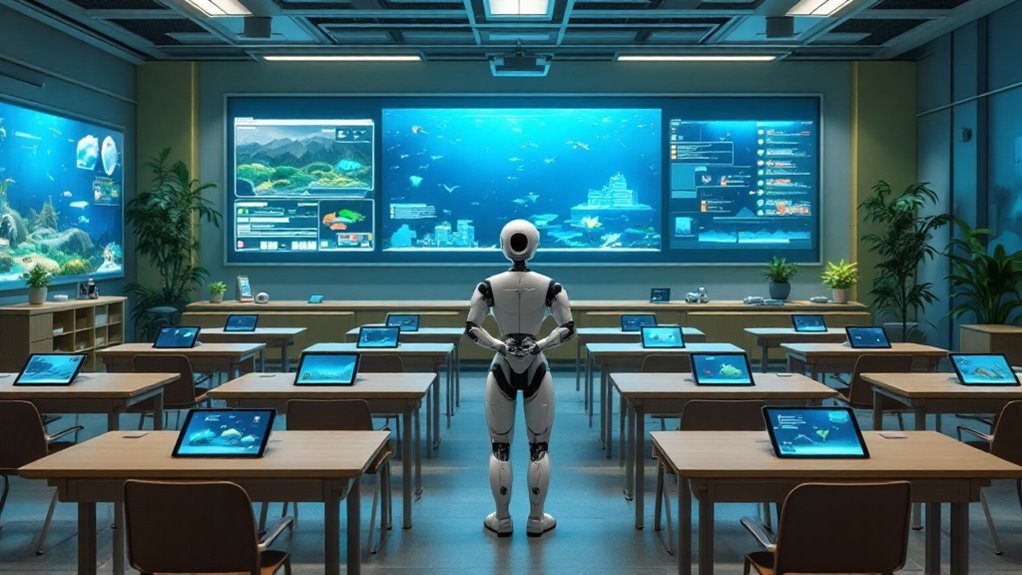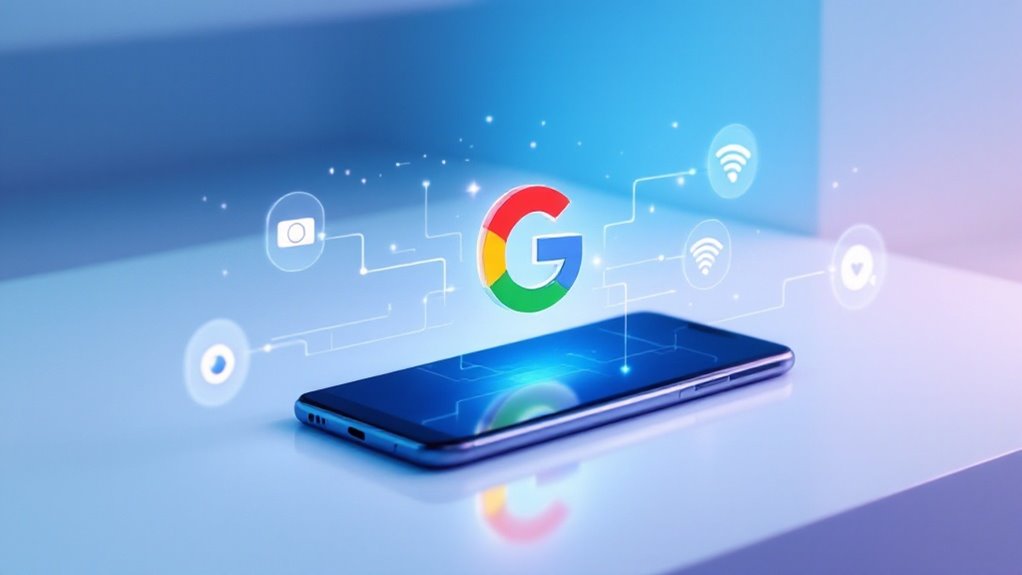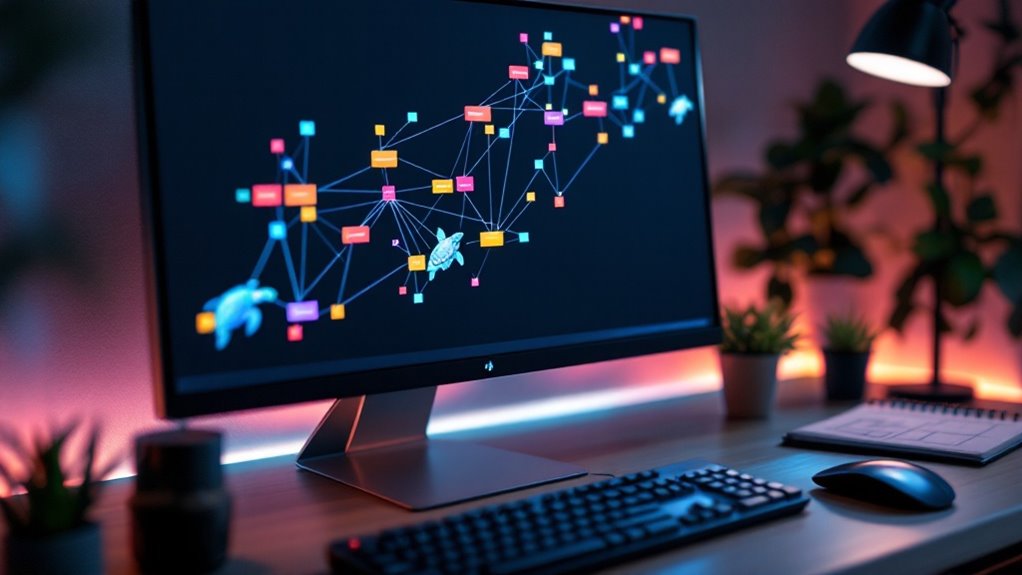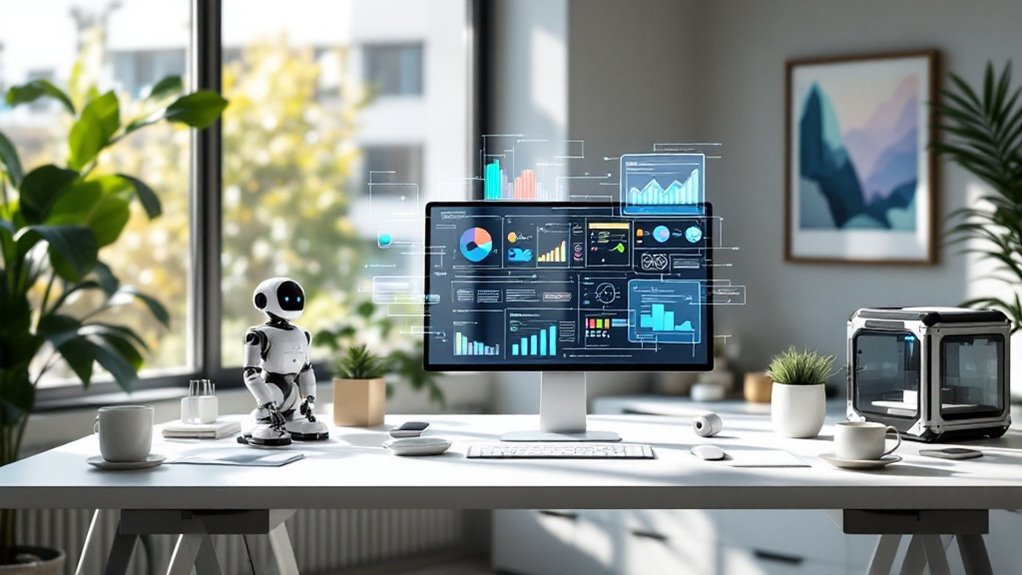AI isn’t just plotting robot uprisings—it’s quietly boosting real life. Think: tutoring kids with tailor-made lessons, spotting wildfires via satellite for quicker response, and making traffic lights a little less rage-inducing. AI helps restore coral reefs, closes pay gaps with fairer hiring, and even gets city infrastructure to “phone home” when it senses trouble. Need legal help but can’t afford it? There’s a bot for that too. Stick around, and you’ll see just how deep this rabbit hole goes.
In classrooms, AI is less “Terminator” and more super tutor. Adaptive learning platforms adjust lessons in real time, so students get what they need—not what some dusty textbook committee thinks they should have. Teachers? They’re freed from the soul-crushing monotony of grading, thanks to automated feedback tools. The global market for AI in education is set to balloon by $3.68 billion by 2024, growing at a pace that would make even TikTok jealous. AI adoption in education is also rising, with 81% of customers expecting quicker service due to technology advancements. These personalized learning environments are revolutionizing education by tailoring content to each student’s unique learning style and pace.
Flip over to environmental conservation, and AI’s got its eco-cape on. By crunching satellite images, it spots endangered wildlife, predicts wildfires, and fine-tunes energy grids—all with the potential to cut global greenhouse gas emissions by 15% by 2030. AI model aiding in the restoration and protection of coral reefs means citizen scientists can now help preserve ocean life with just their smartphones. Not exactly the villain of the climate story.
Disaster response, meanwhile, is going full “Mission Impossible”—AI can halve response times, optimize aid delivery, and assess damage using satellite imagery, saving up to $1 billion annually.
Social equity? AI-driven hiring algorithms help close gender pay gaps, while legal chatbots are providing affordable help to folks who can’t afford fancy lawyers.
Work-life balance is also getting a reboot. AI handles the boring stuff, predicts workloads, and even helps you schedule Zoom calls at humane hours.
Infrastructure? Think AI-monitored bridges, smarter traffic lights, and city plans based on real-time population data.









